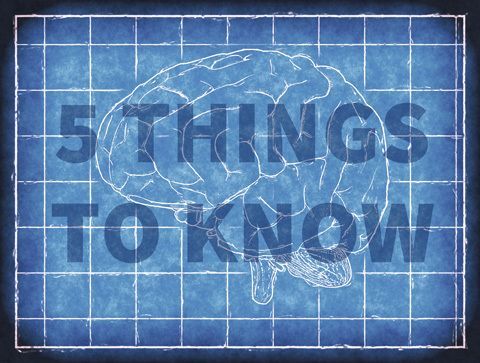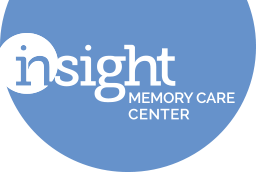
5 simple things we should all know about dementia.
5 Things to Know about Dementia
With dementia, there is still a lot we don’t know. Dementia is the 6th leading cause of death in the United States and the only cause in the top 10 without a way to cure or prevent it. But as we recognize Alzheimer’s and Brain Health Awareness Month this June, let’s focus on the positive; there is a lot we DO know! Let’s start with five things we all should know about dementia.
Dementia is an umbrella term.
Many of us hear – and use! – the terms dementia and Alzheimer’s disease interchangeably. Many times this may be correct, as Alzheimer’s disease is the most common form of dementia, affecting 62% of those diagnosed. However, dementia is really an umbrella term that describes about 100 diseases that trigger a progressive loss of brain function – including Alzheimer’s. Other types of dementia you may hear about include vascular dementia (affecting about 17%), Lewy body dementia, Parkinson’s disease, Frontotemporal dementia or FTD, Creutzfeldt-Jakob disease, Huntington’s disease, or Wernicke-Korsakoff syndrome. Additionally, someone can be diagnosed with mixed dementia, when multiple types of dementia are suspected. Mixed dementia is present in about 10% of diagnosed cases. Dementia is a big umbrella!
There is no cure for dementia.
Sadly, under that big umbrella, there is no cure for dementia. Research is being done, and there are some medications available that can alleviate symptoms for some individuals. However, there is no effective treatment or cure on a large scale. Dementia is the 6th leading cause of death in the United States and the only cause in the top 10 without a way to cure or prevent it.
Dementia is not a normal part of aging.
With no cure, we certainly all worry about memory loss. We all have those moments where we can’t find our keys, or can’t remember someone’s name we just met. Slight lapses in memory are perfectly normal – and often to be expected when you’re also trying to remember what’s going on that day, what you need from the grocery store, and the 27 other things on your to-do list! Dementia, however, is not a normal part of aging. When these memory lapses turn into not remembering how to get home, or not remembering family names, these are signs of memory loss beyond normal aging. When you see these signs in a loved one, make an appointment with your doctor to discuss if memory loss has become a problem.
Early diagnosis can help!
Many think, well if I suspect something’s wrong, but there’s no cure, why bother? Going to the doctor is such a hassle anyway! First and foremost, you should go because - what if it’s not dementia? Memory loss can be a symptom of other health problems that are treatable, and you can relieve a great deal of stress knowing that your loved one does not have a memory impairment. And if it is dementia? With an early diagnosis, you can help optimize your loved one’s health, cognition, activity, and well-being throughout the disease process. You can educate yourself on the type of dementia, know what signs and symptoms to expect, and how to best care for your loved one. You can also prepare for what’s ahead. When your loved one is diagnosed early, they can help make decisions about their own future care. As a caregiver, you can also look for support groups and other networks to help you in your caregiving role.
More awareness is needed.
While there are over 5 million Americans diagnosed and a variety of caregiver support options available for their caregivers, the need keeps growing. Someone is diagnosed almost every minute. However, despite these growing numbers, the general public is largely unaware about the impact of dementia in society. Dementia often still has a stigma; people aren’t sure how to relate to someone with the disease, and can be fearful of interaction. But with a little knowledge, we can all promote a more dementia friendly society, and improve our attitudes and understanding of the disease. This can only help promote care, research, treatments, and cures for the disease going forward.
Want to do more?
Become a Dementia Friend! Dementia Friendly Fairfax is offering these trainings all summer long, free for the community. Learn more about actionable steps you can take to make a difference in the lives of those with memory impairment.
Recent Diagnosis?
If you or a loved one have recently received a diagnosis of memory impairment, our simple Dementia Diagnosis Checklist can help guide your next steps. Feel free to reach out and schedule a consultation if you’d like to talk more about your family’s specific situation. Insight is here to help!
Blog
"I like that IMCC focuses on dementia-related problems and provides a focal point for families to network and socially interact in coping with dementia. It provides a community that helps us in our struggle."




